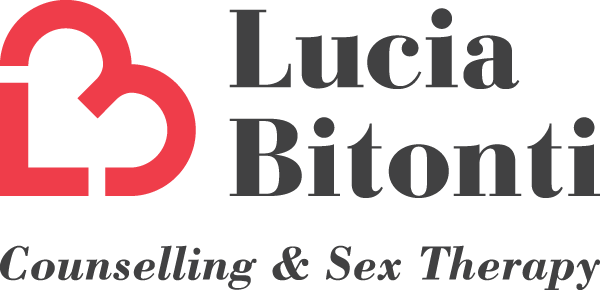Navigating the maze of mental health support can be dizzying, especially when you’re trying to figure out the difference between two fields like sex therapy and counselling. In this guide we decode the unique aspects of each to help you choose the best fit for you.
What is Sex Therapy?
Sex Therapy is a specialised type of psychotherapy that addresses sexual problems, challenges, or concerns. It’s not just about the act of sex but encompasses all aspects of human sexuality:
- Understanding Sexual Health: Delve deeper into the nuanced spheres of sexuality and sexual health, encompassing topics such as arousal, pleasure, the diverse experiences of the LGBTQIA+ community, sexual infections, and more.
- Navigating Relationships: From intimacy challenges to mismatches in sexual desire, sex therapy can provide insights and solutions, including learning to communicate more openly, and understanding and expressing likes and dislikes.
- Addressing Issues: Whether it’s addressing challenges such as erectile struggles, premature ejaculation, difficulties orgasming, vaginismus, or body image issues, sex therapy offers a safe space for discussions and solutions.
- Trauma – Working through sexual abuse, learning to create safety, trust, and healthy boundaries, sex therapy provides avenues to heal and build stronger, safer relational foundations.
- Meaning and Fulfilment: Guiding individuals and couples in connecting with deeper levels of fulfilment and pleasure in their sexual lives, rediscovering purpose and passion in their relationships.
Did you know? The Australian Government’s Department of Health has resources and guidelines on sexual health that could be beneficial.
What’s Counselling?
Counselling is a broader field aimed at helping individuals cope with a range of emotional and psychological challenges:
- Mental Health Issues: From anxiety and depression to stress management.
- Life Transitions: Navigating big changes in life like moving cities, changing jobs, or grieving a lost loved one.
- Relationship Struggles: Whether it’s with partners, friends, or family, counselling can help strengthen bonds and resolve conflicts.
- Divorce and Separation: Offering specialised support during the emotionally complex processes of divorce and separation. Counselling helps individuals navigate the intricacies of ending a relationship, fostering a space for healing and growth.
- Meaning and Fulfilment: Assisting individuals in finding meaning and fulfilment in various aspects of life, connecting with their purpose and passion, and fostering personal growth.
Learn more about counselling and its benefits on our services page.
How Do They Differ?
While there’s some overlap, the key difference lies in their focus. Sex therapy specifically delves into issues surrounding human sexuality, while counselling is broader, addressing various emotional and psychological challenges.
Still, stumped on which to choose? Explore our FAQ section or read on for popular questions.
The Deeper Dive: Understanding the Therapeutic Process
Both sex therapy and counselling are therapeutic approaches, but their methods, techniques, and outcomes can vary based on their foundational principles. Understanding this can help you make an informed decision tailored to your unique needs.
Journey Through Sex Therapy
- Safe Conversations: One of the cornerstones of sex therapy is creating a judgement-free zone. Whether you’re dealing with intimacy issues, body-image concerns, or exploring your sexual identity, everything discussed remains in a cocoon of trust.
- Educational Components: A significant chunk of sex therapy involves education. This could be about anatomy, sexual health, sexual orientations, or even techniques and practices to enhance intimacy. Often, our schooling system doesn’t provide comprehensive sexual education, leaving gaps that can lead to misconceptions. A sex therapist aims to fill these gaps, ensuring you have a well-rounded understanding.
- Techniques & Practices: Depending on the issue at hand, a sex therapist might introduce you to specific exercises or practices to perform, either alone or with a partner. These are designed to tackle particular challenges, be it enhancing intimacy or addressing specific struggles.
- Holistic Approach: Sexuality doesn’t exist in a vacuum. A sex therapist will often explore other aspects of your life, understanding how they interlink with your sexual self. This could involve discussions about relationships, past traumas, or even your current life situations.
Visit our About Us page to get to know more about the qualified professionals at Lucia Bitonti.
Venturing into Counselling
- Emotional Exploration: Counselling is often about delving deep into your emotional world. This might involve unravelling past traumas, understanding current anxieties, or preparing for future challenges.
- Coping Strategies: A significant part of counselling is about equipping you with tools and techniques to manage your emotional and psychological challenges. This could be through cognitive-behavioural techniques, mindfulness practices, or even journaling exercises.
- Life Skills: Beyond just addressing specific concerns, counselling often branches out into enhancing life skills. This could be about improving communication, managing stress, or even boosting self-esteem.
- A Journey of Self-Discovery: At its core, counselling is about understanding oneself better. Through guided conversations, you’ll likely discover aspects about yourself you might not have been aware of. It’s a journey of introspection, self-awareness, and ultimately, self-growth.
Making the Right Choice
Given the nuanced differences between sex therapy and counselling, how does one decide? Consider the following steps:
- Self-Reflection: Start by understanding what you hope to achieve. Are you looking to address specific sexual challenges? Or is it a broader emotional concern you’re hoping to tackle?
- Research: Go beyond just reading this article. Dive into resources like the Australian Government’s Department of Health or the Australian Counselling Association to gain a more in-depth insight.
- Open Dialogues: Talk to professionals. Most therapists, including those at Lucia Bitonti, offer initial consultations to discuss your concerns and guide you in the right direction.
- Trust Your Instincts: Sometimes, the best guide is your intuition. If you feel more drawn to one approach over the other, trust that feeling. The therapeutic journey is deeply personal, and what feels right usually is.
Remember, neither approach is superior to the other; it’s about finding what aligns with your needs. It’s also okay to shift from one to the other if you feel the need. The primary goal is your well-being, and both pathways aim to enhance that.
If you ever feel overwhelmed by the choice, remember, at Lucia Bitonti, you’re not just another client. You’re an individual seeking a brighter, healthier future. With a team that’s deeply committed to your well-being, making the right choice becomes just a tad bit easier.
In Conclusion
Whether you’re leaning towards sex therapy or counselling, the most crucial step is recognising the need for support and seeking it. Lucia Bitonti is here to guide you on your journey. With dedicated, compassionate professionals, you’re not alone in this. Reach out today and take the first step towards healing.
Frequently Asked Questions
Is sex therapy only for couples?
No. While couples can benefit, individuals can also seek sex therapy for personal concerns.
Do you have to be sexually active to see a sex therapist?
Not at all. You can seek guidance regardless of your sexual activity status.
Is counselling a long-term commitment?
It varies. Some might need just a few sessions, while others benefit from longer-term support.
Which is more expensive – sex therapy or counselling?
The cost can vary based on the therapist’s experience, location, and the session’s length.
Is everything discussed confidential?
Absolutely. Confidentiality is paramount in both fields.
Can I switch from counselling to sex therapy (or vice versa)?
Yes, but discuss this with your therapist to ensure a seamless transition.
Are there online resources for self-help?
Yes! The Australian Government’s Mental Health Portal offers a plethora of resources.
How do I know which is right for me?
Discussing your concerns with a professional can guide you in the right direction. Reach out to us, and we can help.


